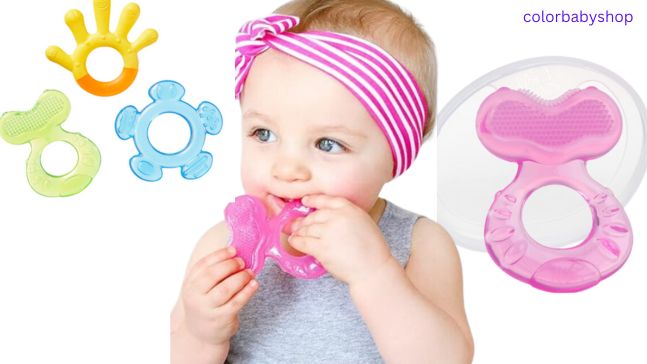| The Importance Of Capping Baby Teeth |
| Capping Baby Teeth often called crowns, serve as a crucial intervention to save decayed or damaged primary teeth. These caps are vital to ensuring that baby teeth, which pave the way for permanent teeth, By placing these crowns, dentists aim to prevent further cavities, relieve pain, and ensure the development of healthy, permanent teeth. The coating also helps preserve space for permanent teeth, which is essential to prevent future dental problems such as crowding or misalignment. |
capping baby teeth They are not just placeholders. They play critical roles in a child’s health and development. A complete set of baby teeth means a child can smile, chew and speak properly. Healthy baby teeth lead to a healthy adult smile.Capping Baby Teeth often called crowns,,,,, serve as a crucial intervention to save decayed or damaged primary teeth. These caps are vital to ensuring that baby teeth, which pave the way for permanent teeth,
It is an important restorative procedure in pediatric dentistry that contributes substantially to the long-term oral health of the child.
Baby Teeth Development And Alignment
Baby teeth lay the groundwork for future oral health. They affect nutritional intake, speech development, and jaw growth. This is how baby teeth support a child’s development:
- Chewing: They allow children to chew food, helping with digestion.
- Speech: They help children form words and develop normal speech.
- Jaw Structure: They maintain the shape and structure of the jaw.
Taking care of these teeth is vital. Poor health on baby teeth can cause misaligned and crowded permanent teeth.
Precursors To Permanent Capping Baby Teeth
The roots of baby teeth guide the permanent teeth. They ensure that permanent teeth grow straight and in the correct place. This is what is happening:
| Age | Baby Teeth Event | Impact on Permanent Teeth |
| 6–7 years | Baby teeth start to fall out | Space is made for adult teeth |
| 7–13 years | Most baby teeth are gone | Alignment of adult teeth is established |
This can cause new teeth to come in crooked or crowded. To prevent this, dentists can use a space maintainer.
When Should Capping Baby Teeth ?
Wondering about capping baby teeth? Parents, take note: it’s a vital part of dental care. Ensuring those little teeth are healthy paves the way for a bright smile. Let’s dive deeper into understanding the perfect timing for this protective step.
Identifying Tooth Decay Early
Spotting tooth decay early It’s crucial. Small teeth create big smiles! White spots near the gum line may indicate cavities. Fight decay with quick actions to prevent it from spreading.
- Gentle brushing twice a day
- Regular dental check-ups
- Healthy diet, low in sugar
Assessing The Need For Dental Caps
Is it time for a cap? A dentist will decide based on some signs:
| Sign | Action Needed |
| Large cavities | Capping to prevent further damage |
| Chipped or broken teeth | Caps restore the tooth’s shape |
| Poorly formed enamel | Crowns help protect the teeth |
The smile of a child with healthy teeth is a joy. Trust a dentist to guide you on this journey to lifelong dental health.
The Process Of Capping Baby Teeth
capping baby teeth. Often a mystery to many parents, this dental procedure plays a vital role in safeguarding the oral health of little ones. Let’s delve into the fascinating stages that this process entails.
Types Of Caps And Materials Used
When comes to restoring your child teeth there are several Baby Teeth option available
- Stainless Steel Crowns:Durable and common on back teeth, they resist biting and chewing forces.
- Composite Crowns: They are aesthetically combined with other teeth, suitable for visible areas.
- Polycarbonate Crowns: Chosen for their quick adjustment, they are often considered a temporary solution.
Materials range from stainless steel to more natural-looking resins and ceramics. Each comes with its own set of benefits, designed to provide resilience and comfort for your little one.
Step-by-step Procedure
- Consultation: Dentists evaluate the health of the tooth and discuss capping options.
- Preparation: The tooth is cleaned and shaped to fit perfectly into the cap.
- Selection: The right cap type is chosen based on the tooth’s needs and location.
- Fitting: The cap is accurately placed over the tooth and secured with dental cement.
- Adjustment: Dentists check the bite and make any necessary adjustments for comfort.
- Follow-Up: Parents receive guidance on aftercare and potential follow-up visits are scheduled.
Caring For Capping Baby Teeth
This shield helps protect the tooth from becoming injured or diseased.Let’s learn the best ways to take care of our teeth with caps.
Daily Oral Hygiene Practices
every single day Keeping covered teeth clean is very important! This is what you should do
- Brush twice a day: Use a toothbrush with soft bristles. Move it in small circles on each tooth, even the covered ones!
- Floss gently: Slide the floss between your teeth and slide it up and down. Do this carefully around the lids.
- Rinse with mouthwash: Swish it around your mouth for 30 seconds. Spit it out. This helps get rid of germs.
Regular Dental Check-ups And Maintenance
Just as cars need checkups to function properly, capped teeth need frequent visits to the dentist. It’s super important!
- Visit every six months: The dentist checks the caps and teeth. They make sure everything looks good.
- Professional cleanings: The dentist has special tools that leave your teeth super clean, even around the capsules!
- Fix issues fast: If a cap feels loose or awkward, tell an adult.
Frequently Asked Questions On Baby Teeth
Is It Necessary To Capping Baby Teeth?
How Long Do Caps Stay On Capping Baby Teeth?
Caps also known as dental crowns generally remain on Capping baby teeth until they fall out naturally which can vary but usually occurs in adolescence.
At What Age Can Capping Baby Teeth?
Teeth can be filled at any age if there is a dental need.
Dentists use silver caps on baby teeth to restore decayed or damaged teeth and maintain chewing function.
Conclusion
Taking care of your child’s dental health sets the stage for a radiant smile in the future. capping baby teeth can be a good option to preserve oral function and prevent future problems. As parents, we want the best for our children and this includes sound dental practices.
Embrace dental care early – your little one’s smile depends on it.




Pingback: How to Make Your Baby Products Stand Out: 3 Simple Steps